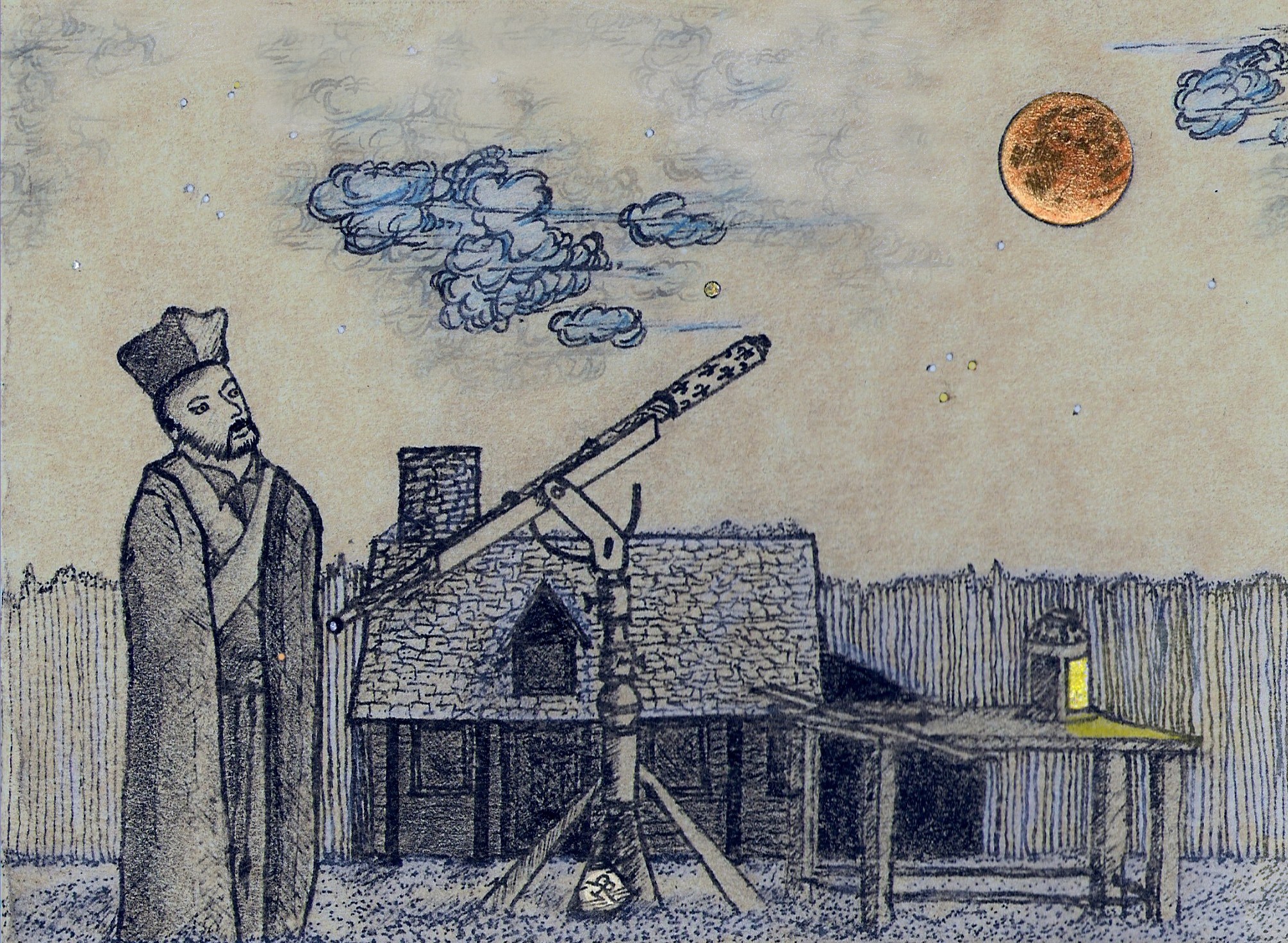
Total solar eclipse 2024: What happens when the sky gets dark?
Estimated Reading Time:
BGSU 2024 Reddin Symposium in Canadian Studies to explore how North Americans experience the night sky
By Laren Kowalczyk ‘07
The 2024 Reddin Symposium in Canadian Studies was made possible, in part, by Ohio Humanities and the National Endowment for the Humanities and with support from the Reddin Fund for Canadian Studies.
As part of the University’s robust series of events leading up to April’s total solar eclipse, Bowling Green State University is bringing together a diverse panel of U.S. and Canadian experts from archeology, astronomy and science to explore how North Americans experience the night sky.
The 2024 Reddin Symposium in Canadian Studies titled, “The Sky Has No Borders: Perspectives on Astronomical Knowledge from Canada, Mexico and the United States,” will be presented at the Wood County District Public Library from 6-8:30 p.m. on Feb. 22 as part of the BGSU Eclipse Speaker Series.
The panel discussion will feature Dr. Sarah Reynolds, an assistant professor in the University of Indianapolis Department of Physics and Earth-Space Science, and Randall Rosenfeld and Frank Dempsey, both of the Royal Astronomical Society of Canada (RASC).
Colin Bird, consul general of Canada in Detroit, will provide opening remarks. Dr. Kate Dellenbusch, a BGSU physics and astronomy professor, and Dr. Rebecca Mancuso, an associate professor of history and director of the University’s Canadian Studies program, will moderate the event.

Eclipse artifacts
Rosenfeld, the event’s keynote speaker, will use eclipse-related artifacts dating back to the 1600s to shape his discussion on how people experienced solar eclipses throughout history.
Among the artifacts is an illustration depicting the earliest documented use of a telescope for astronomy in what was to become Canada.
“It is striking how often an eclipse played a role at significant junctures in the development of astronomy in Canada,” Rosenfeld said.
Rosenfeld also will share solar eclipse glasses commercially produced for the June 1927 eclipse, a booklet made from birch bark used by an amateur astronomer to record his eclipse observations in 1900 and a few other items.
“These are things that were generated by people experiencing eclipses or preparing to experience them,” Rosenfeld said. “I’ll be using the artifacts to help illustrate their attitudes toward the spectacular celestial events and what they experienced when the sky got dark.”
Indigenous perspectives
Dempsey, an amateur astronomer and a Toronto Centre RASC council member, will share how Indigenous people have historically viewed the night sky, drawing on his experience as a member of the Dokis First Nation.
“People living in nature without modern education or gadgets understood eclipses would occur from time to time and would see and watch them,” Dempsey said. “I plan to talk about how Indigenous people lived, how they viewed nature, hunted and traveled and how they predicted eclipses.”
Dempsey said he also wants to emphasize the importance of experiencing the eclipse naturally, without technology.
“People should enjoy the natural sight that is unfolding in front of them and not be bogged down with technology, other than viewing the eclipse safely,” he said. “Stand there and enjoy the spectacle as our ancestors did thousands of years ago.”
The symposium is being presented by the BGSU Department of History and the Department of Physics and Astronomy, with support from the Reddin Fund for Canadian Studies.
Education and entertainment
The Reddin Symposium is an extension of the University's efforts to bring eclipse education and entertainment to the BGSU community and beyond, as part of its overarching commitment to being a public university for the public good. The 11-week Eclipse Speakers Series, which began Jan. 25, highlights the historical and cultural aspects of total solar eclipses and features University faculty and experts from several colleges and departments, including the College of Arts and Sciences, College of Musical Arts and the English and art departments, with events for both adults and children.
"One of my big goals as we get close to the eclipse is to share with people just how much it's a human experience," Dellenbusch said. "With the speaker series, I want to share with the public a lot of the interesting connections from astronomy, history, literature and music – the kinds of connections that humans have made to eclipses."
BGSU students in the history department are also bringing the astronomical past to life through a five-episode podcast highlighting the event's historical and cultural significance, a unique project that aligns with the University’s commitment to experiential learning. The “Eclipsing History” podcast features 30-minute episodes on Indigenous cultures, astronomic knowledge, religion and magical thinking, eclipse tourism and technologies and the history of emotions. It will be available for download on the University’s website, Spotify and other platforms in late February.
In addition to being a prime location to view the total solar eclipse, BGSU has traditionally played a significant role in Ohio’s science and engineering successes by producing job-ready graduates in numerous STEM-related fields.
Within the University's physics and astronomy department in the College of Arts and Sciences, BGSU students actively participate with faculty in cutting-edge scientific research in astrophysics, materials science, nano-science, solid-state physics and computational physics.
In addition, the BGSU Planetarium and Observatory also offers astronomy research, education, and community engagement opportunities. These experiences are crucial for developing the credentials that graduate programs and employers seek.
Related Stories
Media Contact | Michael Bratton | mbratto@bgsu.edu | 419-372-6349
Updated: 03/14/2025 11:24AM




